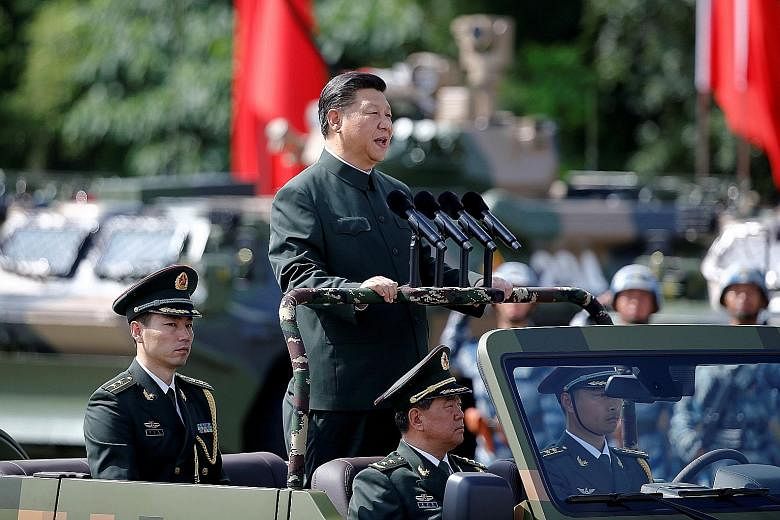Chinese President Xi Jinping's year of 2017 was bookended by two events that made the world sit up and take notice of his growing stature as a global statesman and the immense power he wields at home.
One was his speech at the World Economic Forum in Davos in January that gave notice of his intention to lead his country in keeping economic globalisation going, in the face of the United States' retreat with new President Donald Trump's America First policy.
This was reinforced by another speech Mr Xi gave the following day at the United Nations in Geneva, in which he said China remained committed to the Paris climate accord even as Mr Trump threatened to pull the US out of it. This was reassuring to the world as China is the world's largest carbon emitter - with the US in second place - and its participation in mitigating climate change is crucial.
The other significant event was in October at the pivotal five-yearly congress of the ruling Chinese Communist Party (CCP) that Mr Xi leads. He had his political thinking written into the party's Constitution, making it hard for anyone to oppose his policies in the years to come.
He also had his allies and proteges promoted to key positions at the central and local party and government organs that should help with the implementation of his policies.
At the congress, Mr Xi also spelt out how he will be using the power he has amassed.
He wants to make China great again - in CCP-speak, "a great modern socialist country" that is a "global leader in terms of composite national strength and international influence".
To achieve this, he will need unity in the party and among the people, which means stressing party discipline, greater media control and cracking down on dissent.
Externally, Mr Xi seeks to increase China's influence through his ambitious Belt and Road Initiative to build infrastructure that links up more than 60 countries.
He is also modernising the People's Liberation Army to better protect growing Chinese interests overseas. He has spoken about reforming the international order to better represent developing countries.
All this has led to concern among established powers, particularly the US. In its recent National Security Strategy, it characterised China as its major competitor across a broad spectrum of domains.
As a Chinese analyst has said, there might be "contradictions and conflicts" in the days to come as the world adjusts to a more muscular China under Mr Xi.

